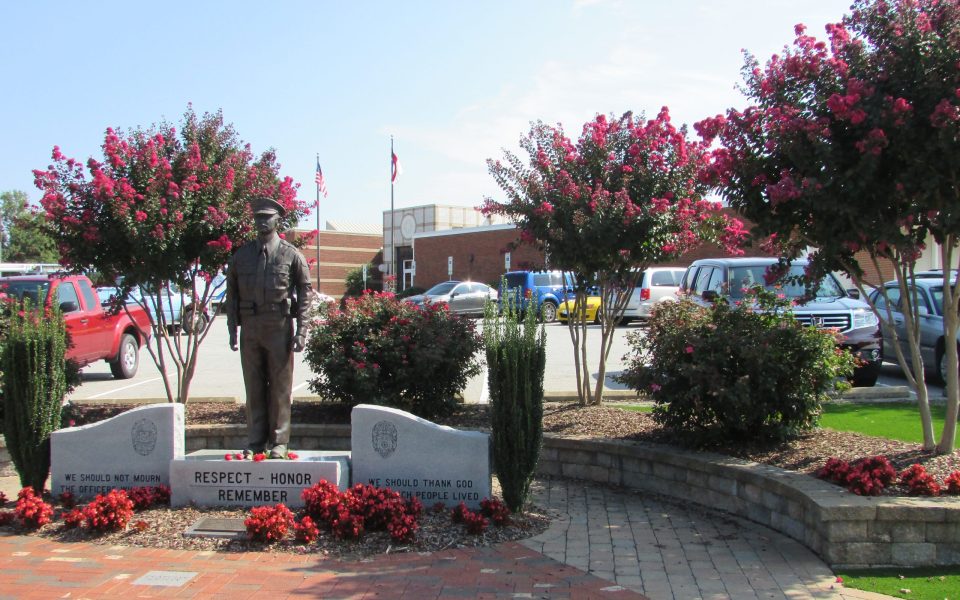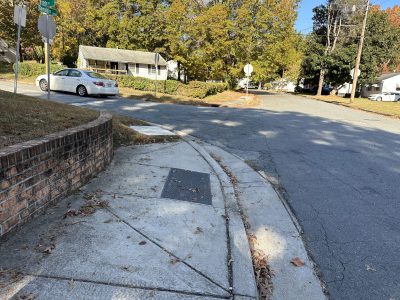High Point City Council clamps down on its human relations commission and creates a mechanism to replace its membership in reaction to a program about police-involved shootings and a flier with the phrase “dismantling white supremacist systems.”
The nine members of High Point City Council unanimously approved an overhaul of the local ordinance governing the city’s human relations commission during a special meeting on Aug. 27.
“The main change is it brings it back to council,” City Attorney JoAnne Carlyle explained. “A lot more control is with council. You set the direction.”
Among the amendments to the ordinance:
- The amendment completely strips the commission of the ability to investigate complaints of “the denial of equal access to, and discrimination in employment, housing, education, recreation and public accommodations where the denial and discrimination against either an individual or a group is based on race, creed, color, national origin, sex, age or handicap.” Under the rewrite, the commission is charged with developing “plans and analyses for human service needs.”
- Reference to a “director of human relations” hired by the city manager is replaced with the term “human relations program.”
- Under “functions and duties,” language referencing the commission as “the authorized agency” that “shall” perform specifically outlined duties is replaced with the term “advisor to the city council,” which “may” carry out certain duties “specifically as approved by city council.”
- The commission is also stripped of the ability “to act as a public forum to hear complaints from groups and/or individuals whereby misunderstandings, differences or alleged unfair treatment may lead to serious conflict.” Under the rewrite, the commission is charged instead with monitoring “the trends and activities in human relations in the city.”
- Under functions and duties, the revised ordinance adds the responsibility of encouraging “youth to become better trained and qualified for employment.”
- In a bid to improve accountability, the rewrite charges the commission with providing “biannual reports to city council that contain a six-month work plan.”
- The size of the commission is reduced from 13 to nine members, with the mayor and members of city council making one appointment each. Mayor Bill Bencini asked council members to bring their appointments to the first city council meeting after Labor Day. Each council member holds the discretion of making entirely new appointments or re-appointing current members who are eligible.
At-large Councilman Latimer Alexander said the desire to overhaul the human relations ordinance grew out of concern that the department “was headed in a direction contrary to where the city really felt it needed to be.”
Human Relations Director Al Heggins, who is black, was placed on paid leave on June 18, after telling City Manager Greg Demko that she felt in fear for her life. A widely circulated email from Heggins aired concerns about racial tension and institutional racism in the city, while a run-in with the police department over an antiracism training. Heggins later returned to work and has filed an Equal Employment Opportunity Commission complaint with the federal government.
Demko said during the meeting that he plans to make some administrative adjustments in the program without specifically mentioning Heggins’ status or future. He could not be reached for comment after the meeting.
“Our human relations department has been in conflict with our police department over a program called ‘Black and Blue,’ and it’s just been a bubbling cauldron of tension between the city, the police department and human relations over the program,” Alexander said. “The police participated initially in it. When it didn’t go in the direction we felt it should go, [the police] backed away.”
The explicit discussion of race in programming and literature produced by the human relations department disturbed many members of city council and some of their constituents, Alexander said.
“There was a flier that went out referencing ‘white supremacy’ and a lot of other things that were very troubling to many in the community,” he said. “It was the language that folks did not appreciate. There are many things in the modern language that folks said, ‘Gee, that’s an inappropriate thing to say.’”
Jason Yates, who held the position of co-chair of the commission up to the time of the council’s Aug. 27 vote, said the volunteer citizen board’s only transgression was being responsive to citizens.
“We didn’t set the agenda,” he said. “People came to us after Mike Brown was killed in Ferguson and after the guy was choked to death in New York. And they came to us and they said, ‘If it can happen in a town as small as Ferguson and as large as New York City, why can’t it happen here?’ And we said, ‘That’s a good question.’ The citizens’ concern is what drove us to organize what was intended to be a single event. At that event, the community said, ‘This is a good discussion; we’d like to continue having it.’ And so we set that up on a regular basis.
One of the people invited to make a presentation during the “Black and Blue” series was Barbara Lawrence, a Guilford College professor. Lawrence currently chairs the Greensboro Interim Citizens Police Review Committee, an unofficial group set up to independently investigate complaints of police misbehavior.
Yates said the title of Lawrence’s presentation included the words “dismantling white supremacist systems.
“And once that flier went out it just created the brouhaha that led to this,” Yates said. “To me this was clearly a response to council’s discomfort in hearing or being exposed to conversations about race.”
Yates said he’ll reapply for his position, but the new appointment process didn’t engender hope.
“It’s an attempt to cherry-pick the people that they want on the board so that they can get people who will not expose them to conversations about race that they’re uncomfortable about,” he said.
Former Mayor Bernita Sims, who stepped down last year prior to pleading guilty to a felony offense of passing a worthless check, asked to be recognized from the audience after the vote.
“This is not a public hearing,” Mayor Bill Bencini replied. The special meeting had been advertised six days in advance, but City Attorney Carlyle said that unlike rezoning requests, state law didn’t require a public hearing to amend the ordinance in this case.
“I just think this whole thing should have involved a public conversation about the changes,” Sims said after the meeting adjourned, “before they adopted these changes and moved on.”
The process of rewriting the human relations ordinance, which involved a committee of four council members, reflects a unified effort in local government, Alexander said.
“The rewrite of this ordinance was put together by our city attorney and four of our council members,” he said. “Jay Wagner and Alyce Hill both are lawyers, and then Chris Williams and Jeff Golden. We have three attorneys and two African Americans taking a look at a human relations commission. And they brought us an amendment, and it passed unanimously.”
Alexander indicated he’s not concerned about the possibility the council’s action might unintentionally set off the kind of unrest seen in Ferguson and Baltimore by shutting down a pressure valve that had allowed citizens to vent frustrations.
“I believe you will see in the very near term a revamped opportunity of communication between our police department and our citizens,” he said. “I believe it will allow an interactive communication opportunity, but it will be in a much more structured way, respectful of all sides, without an agenda.”
Join the First Amendment Society, a membership that goes directly to funding TCB‘s newsroom.
We believe that reporting can save the world.
The TCB First Amendment Society recognizes the vital role of a free, unfettered press with a bundling of local experiences designed to build community, and unique engagements with our newsroom that will help you understand, and shape, local journalism’s critical role in uplifting the people in our cities.
All revenue goes directly into the newsroom as reporters’ salaries and freelance commissions.





Repression is clearly the council’s agenda!
Heggins position is largely a political one and she holds it only due to her female black privilege. Anyone else would have been fired long ago. Instead, she continues to rake in an annual salary that is at least three times what the average High Point citizen makes and seems to do little more than hold poorly attended forums a half dozen times a year and stir up trouble in the meantime.